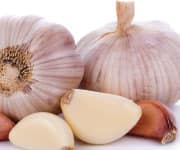Life Extension Magazine®
Nutrients Strengthen the Immune System Against Viral Infections

A review published in the Archives of Physiology and Biochemistry found evidence for nutrients including protein, vitamins, minerals, and fatty acids, that strengthen the human immune system against viral infections.*
Fifty-one articles were reviewed, which focused on the effects of nutrients in immunity and viral infections. They included reports of randomized trials, case-control studies, in vivo studies, and randomized-trial meta-analyses.
These studies identified protein, omega-3 fatty acids, vitamins A, B1, B6, B12, C, D and E, iron, selenium, and zinc as having a role in strengthening the immune system and supporting immune function.
Among the mechanisms discussed are:
- The role of amino acids in the immune system’s antiviral actions,
- Vitamin A’s involvement in maintaining mucosal integrity,
- Vitamin C’s anti-inflammatory effect in sepsis,
- Vitamin D-associated reduction of viral replication rates and inflammatory cytokine levels,
- Vitamin E’s ability to help maintain T-cell membrane integrity, and
- Zinc’s ability to impair viral replication.
Editor’s Note: In some of the studies, nutrient supplementation was associated with improved health status of infected individuals. “Supplementation with some nutrients may support the body’s natural defense system by enhancing the immunity, epithelial barriers, cellular immunity, and antibody production,” the review’s authors wrote.
* Arch Physiol Biochem. 2020 Jul 9:1-10.
Probiotic Supplementation Can Help Improve Depressive Symptoms

People who have symptoms of depression may benefit from supplementation with probiotics with or without prebiotics, according to a systematic review published in the journal BMJ Nutrition Prevention & Health.*
For their review, the researchers selected seven studies that enrolled a total of 361 men and women. The studies examined the effects of at least one probiotic bacteria strain on anxiety or depression.
“Every study demonstrated a significant, quantitatively evident, decrease/improvement of symptoms and/or biochemically relevant measures of anxiety and/or depression for probiotic or combined prebiotic–probiotic use,” the authors reported.
The authors concluded that the effects of prebiotic and probiotic therapy against depression and anxiety warrant further investigation in larger populations.
Editor’s Note: Probiotics are helpful bacteria residing in the intestinal tract that help in digestion and other aspects of health. Prebiotics are nutrients that support the growth of these microorganisms.
* MJ Nutrition, Prevention & Health. 2020:bmjnph-2019-000053.
Garlic May Benefit Rheumatoid Arthritis Patients

Results from a trial reported in Phytotherapy Research revealed improvements in pain, inflammation, tender joint count, disease activity score and fatigue among rheumatoid arthritis patients who were supplemented with 1,000 mg of garlic daily, compared to patients who received a placebo.*
The trial included 70 women with active rheumatoid arthritis who received 500 mg garlic powder tablets twice per day (equivalent to 2.5 grams fresh garlic) or a placebo for eight weeks.
At the beginning and end of the study, clinical symptoms and fatigue were assessed and biomarkers of inflammation including erythrocyte sedimentation rate, C-reactive protein (CRP), and tumor necrosis factor-alpha (TNF-a) were measured.
At the trial’s conclusion, serum CRP and TNF-a were significantly reduced among participants who received garlic in comparison with the placebo group, indicating decreased inflammation. Pain intensity, tender joint count, fatigue, and disease activity scores all improved in association with treatment compared to the placebo.
Editor’s Note: The authors observed that garlic is rich in bioactive compounds that include allicin and diallyl sulfide, which have been found, in several studies, to have anti-inflammatory effects. Other studies have reported pain-relieving and anti-fatigue benefits in association with garlic intake. Additionally, garlic may help protect against joint cartilage destruction.
* Phytother Res. 2020 Jun 1.
Passive Stretching is Good for Heart Health

Passive stretching could improve heart health by boosting blood flow, according to a study published in the Journal of Physiology.*
Unlike active stretching, passive stretching involves using an external force, such as gravity or another person, to help achieve a deeper stretch.
For this study, 39 people were divided into two groups: one that performed leg stretches five times a week for 12 weeks, and one that did no stretching.
The researchers found that stretching helped to increase blood flow and dilation—and decreased stiffness—in the arteries in the upper arm and lower leg.
According to one of the study’s authors, “This new application of stretching is especially relevant in the current pandemic period of increased confinement to our homes, where the possibility of performing beneficial training to improve and prevent heart disease, stroke, and other conditions is limited.”
Editor’s Note: This study indicates that stretching could potentially represent a drug-free way to improve vascular health and reduce disease risk, as changes in blood flow due to an impaired vascular system are characteristics of diseases such as heart disease, stroke, and diabetes.
*The Journal of Physiology, 2020.

